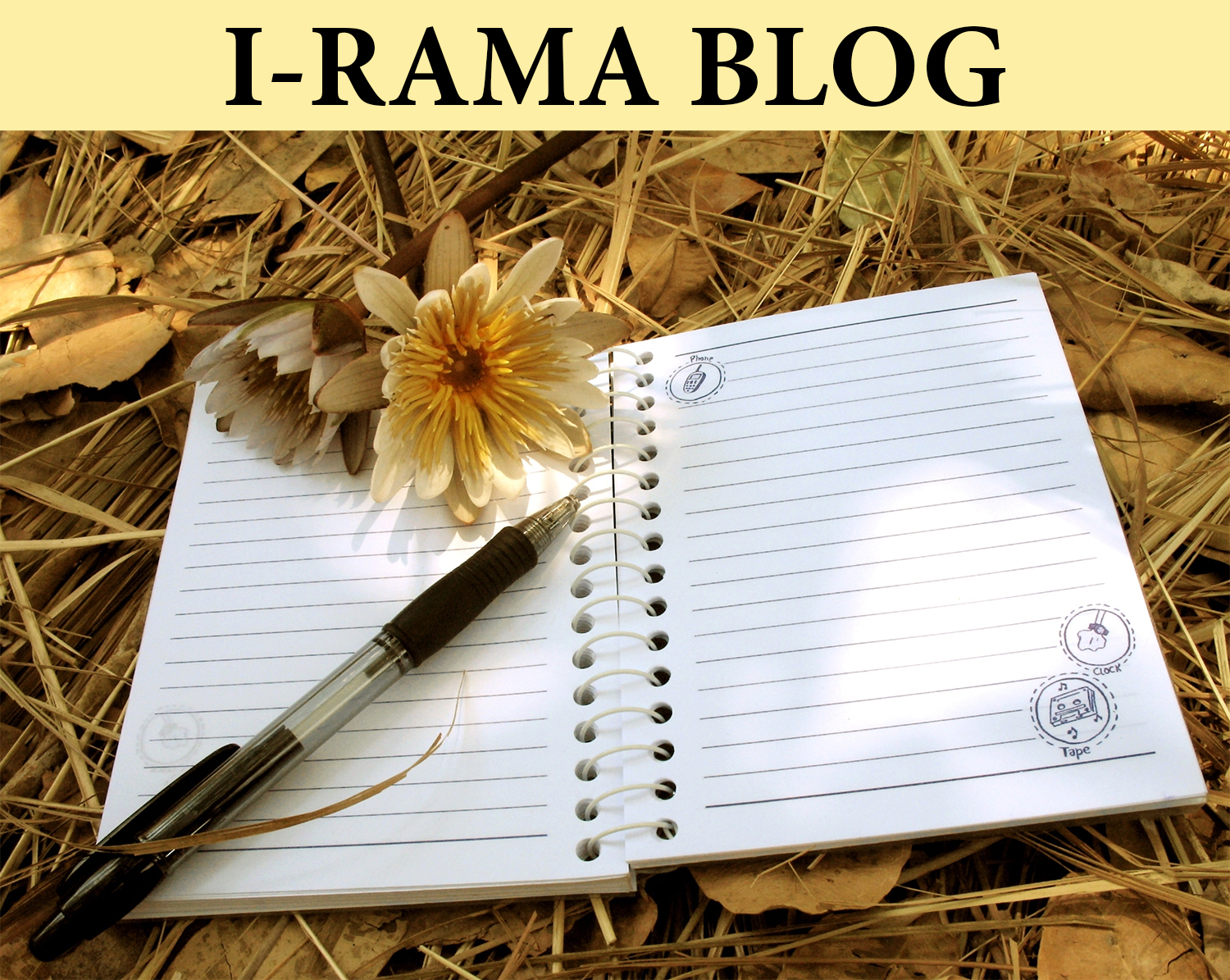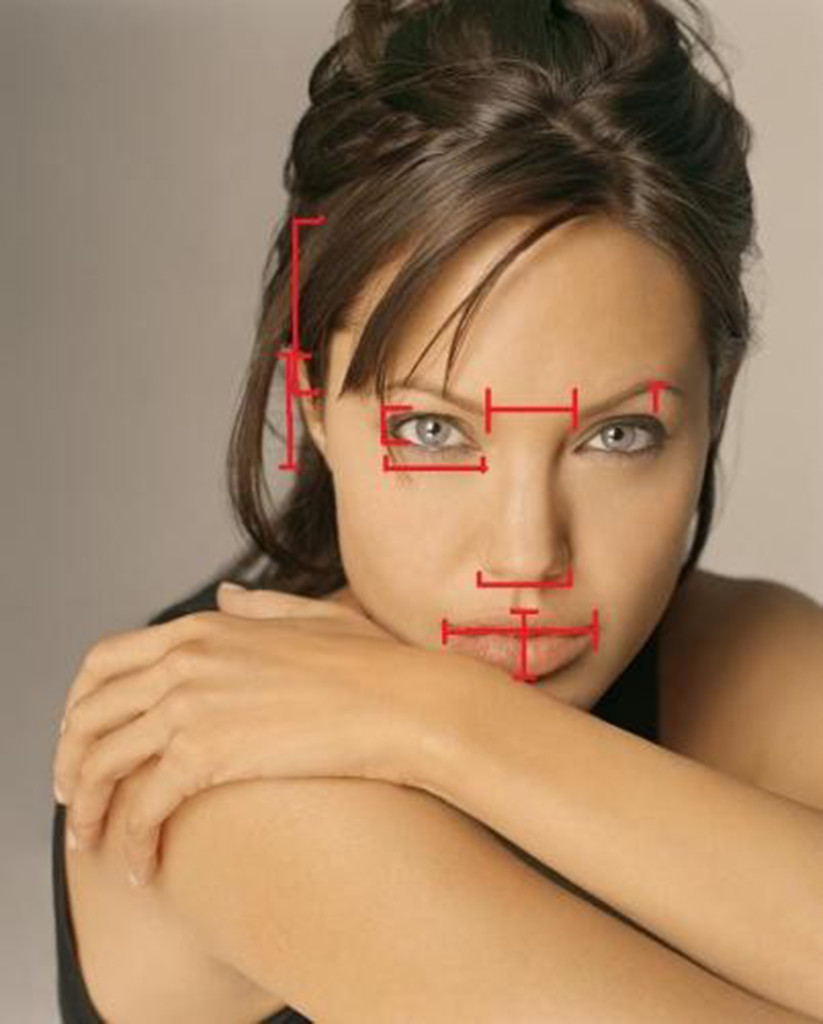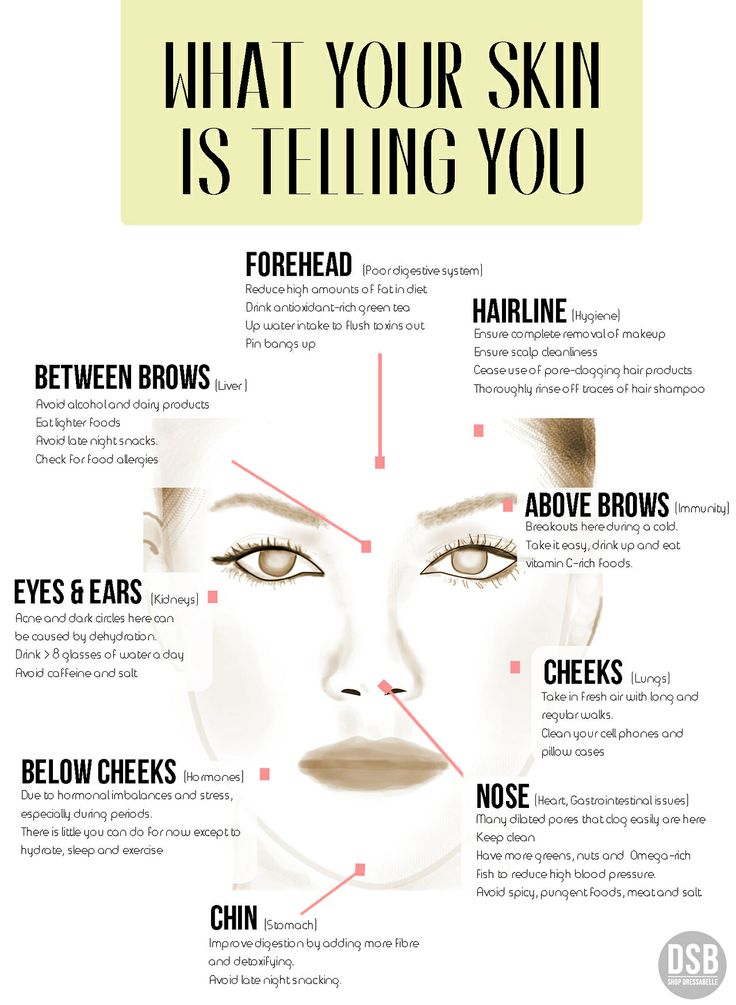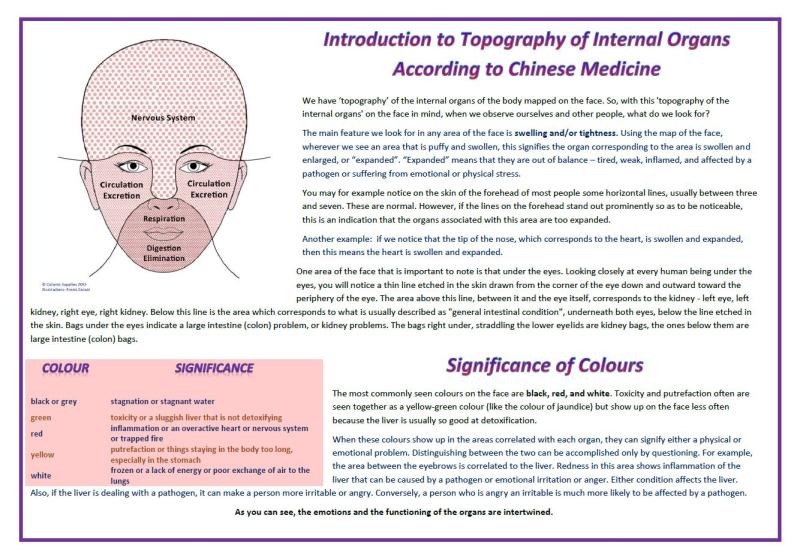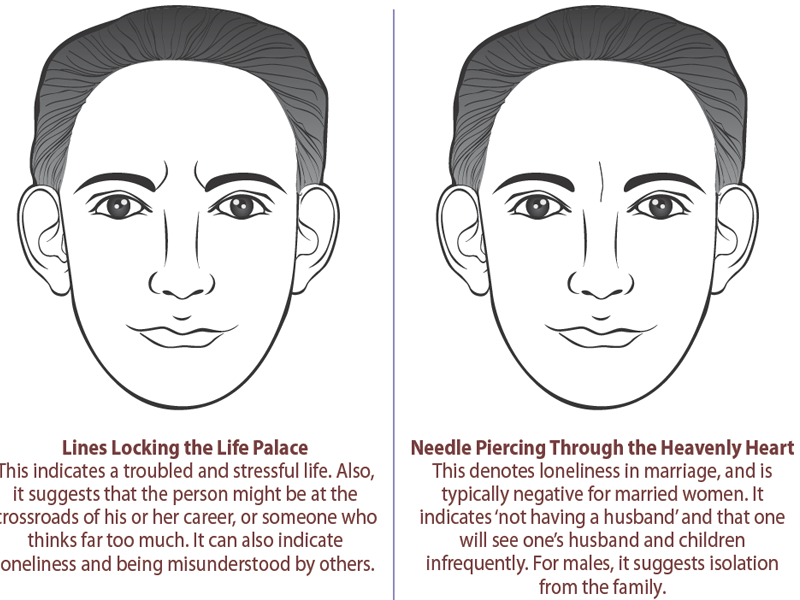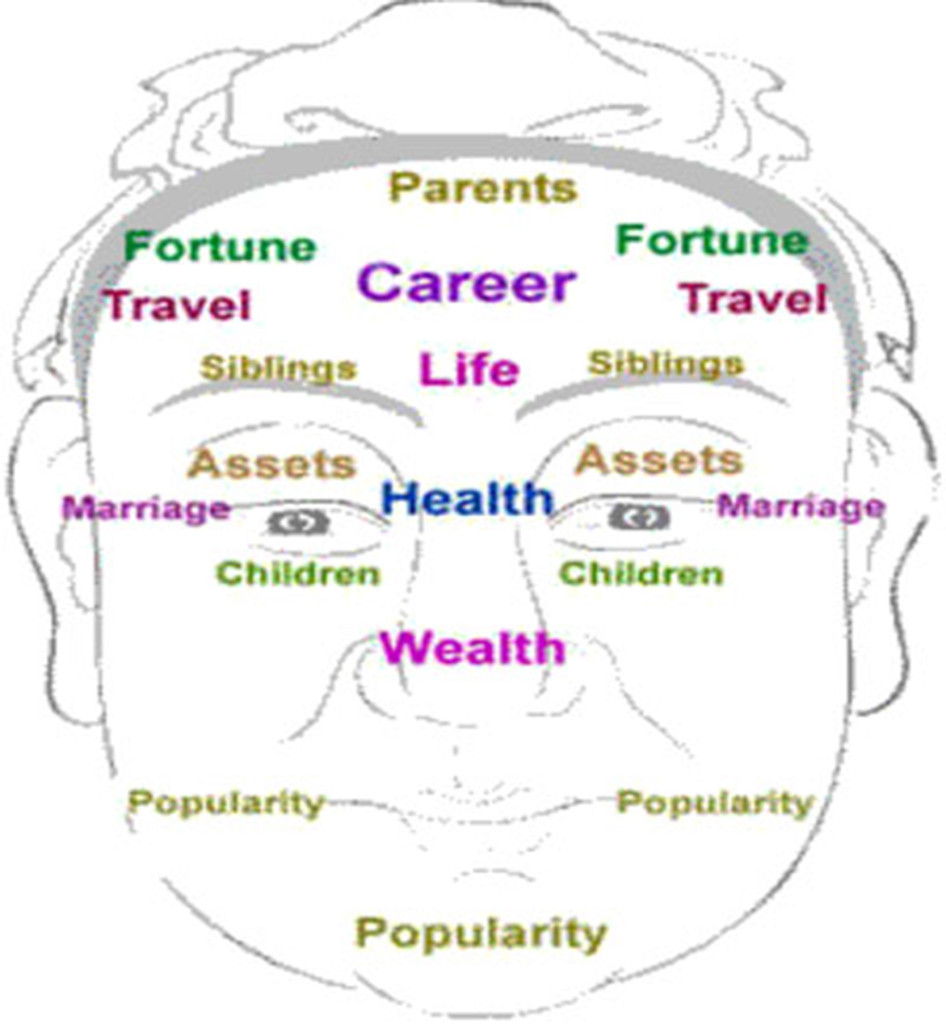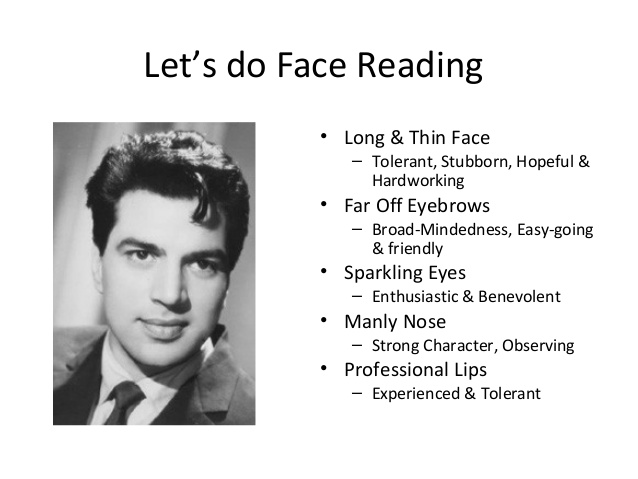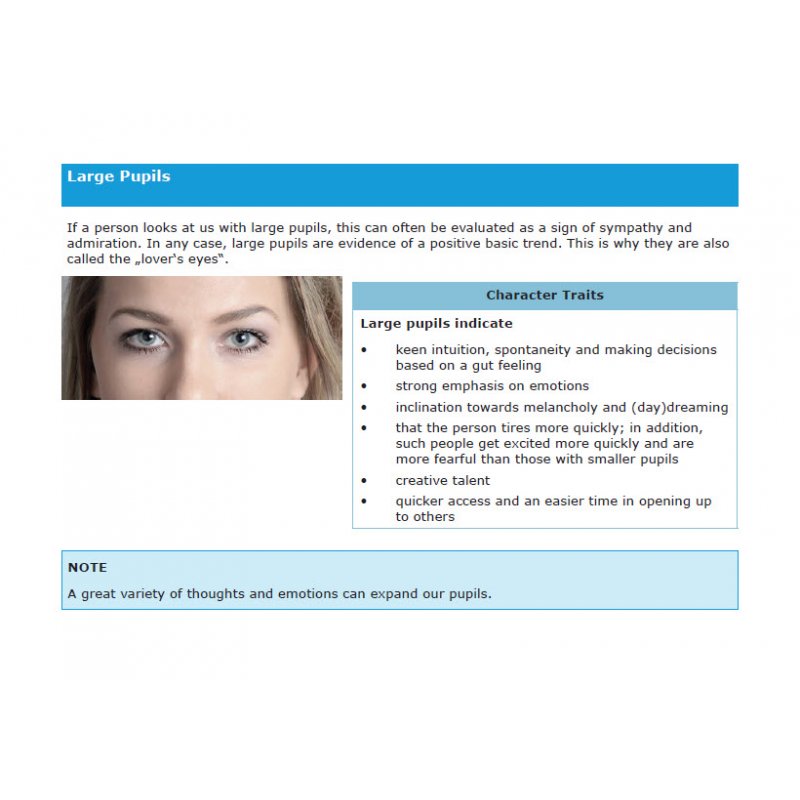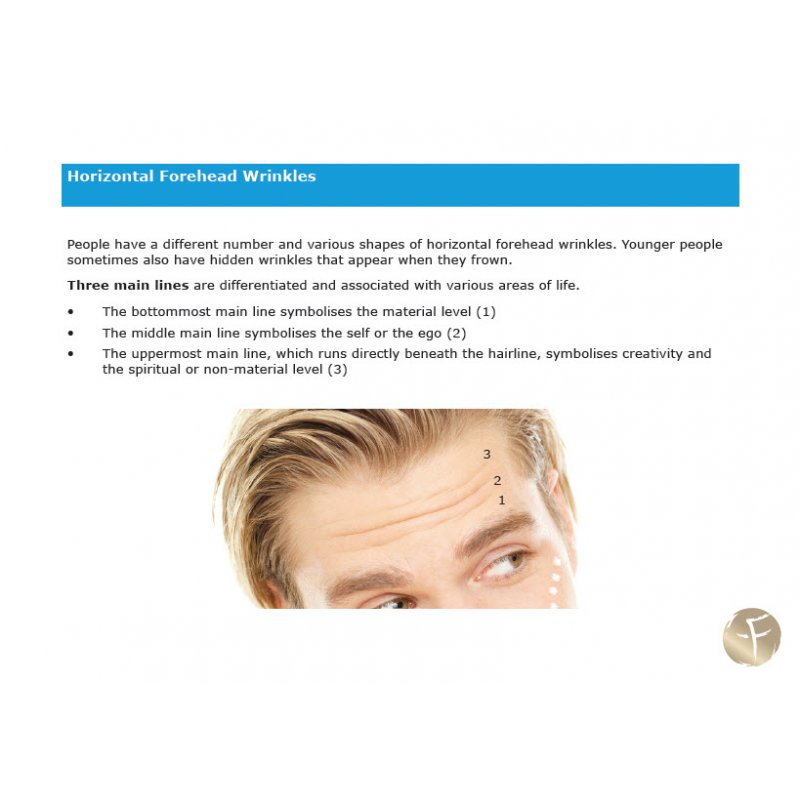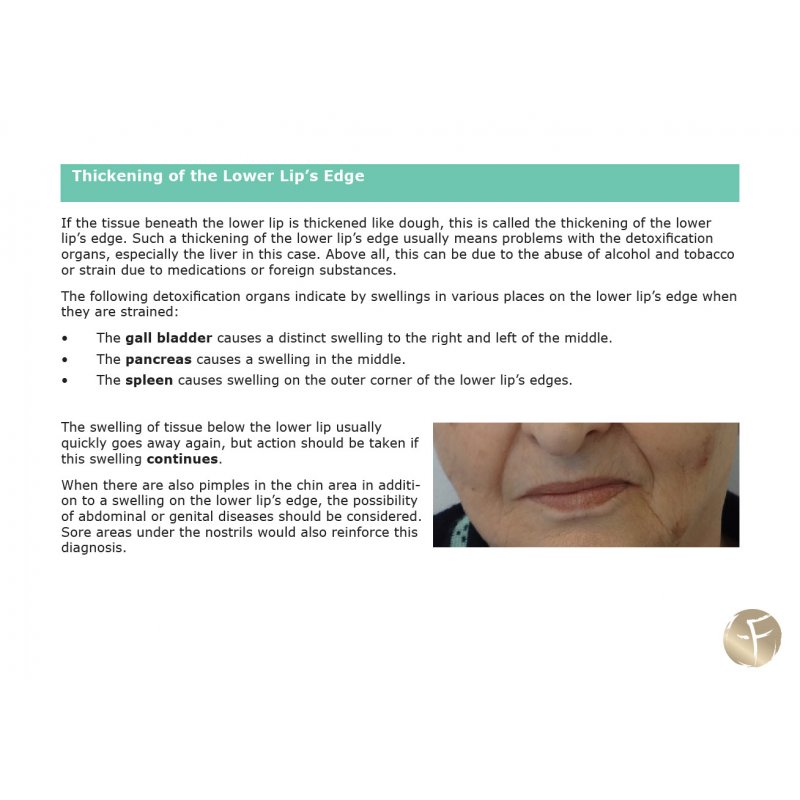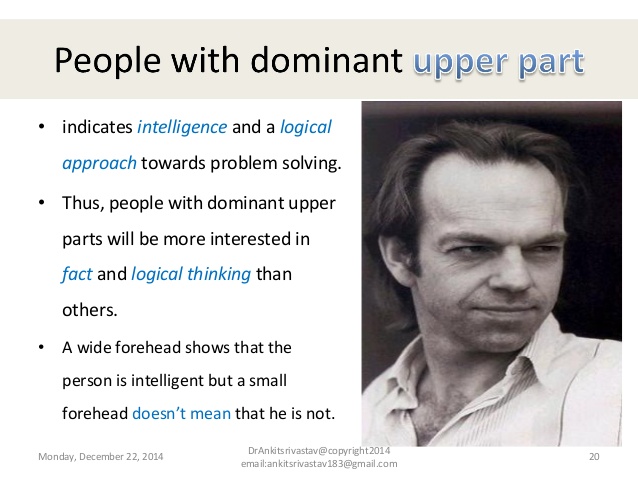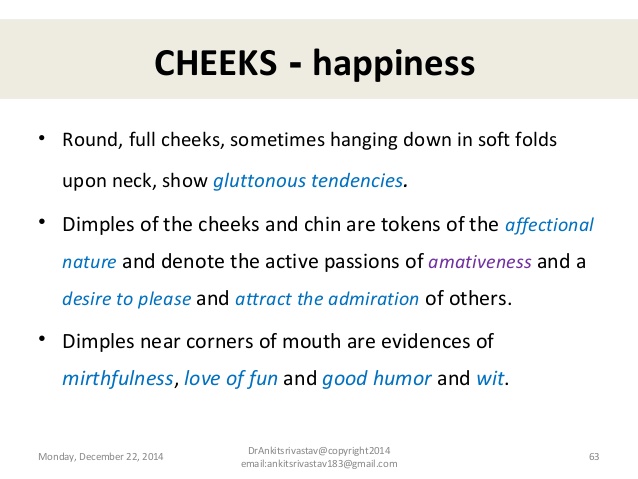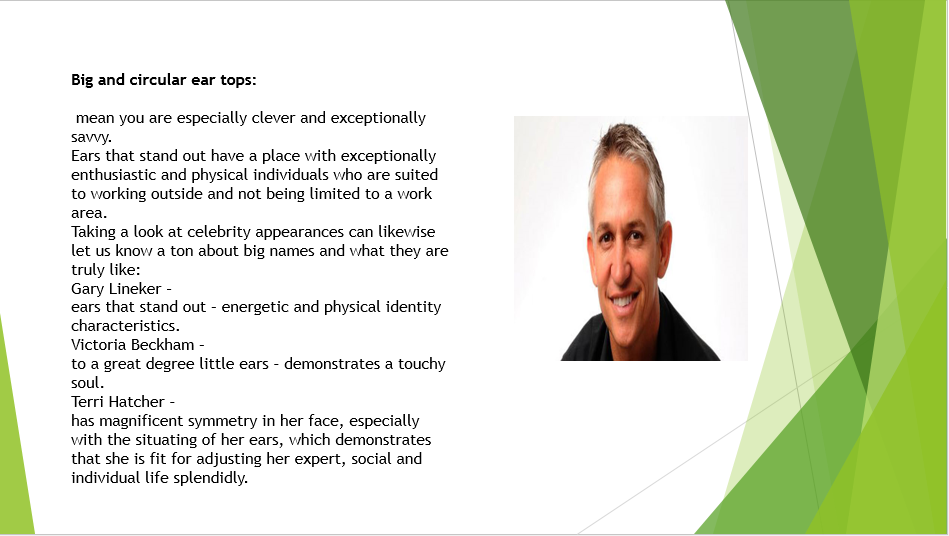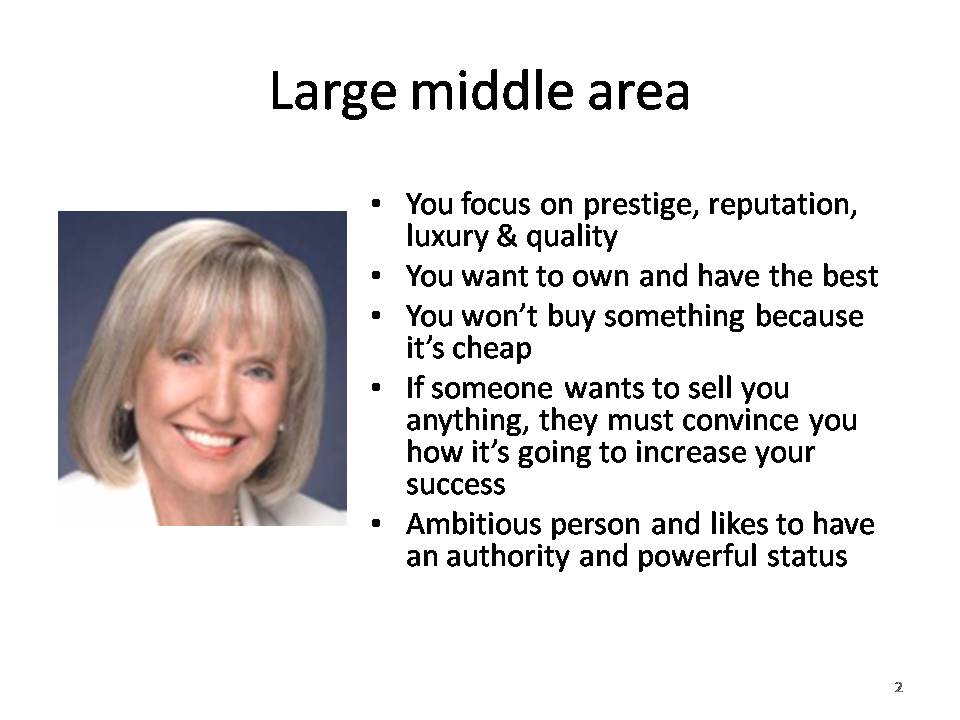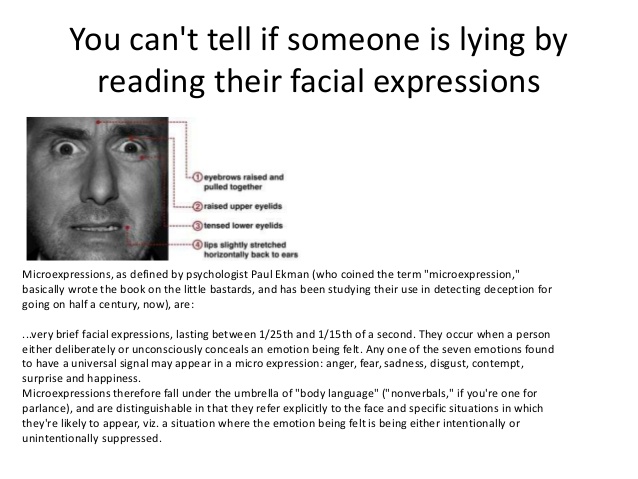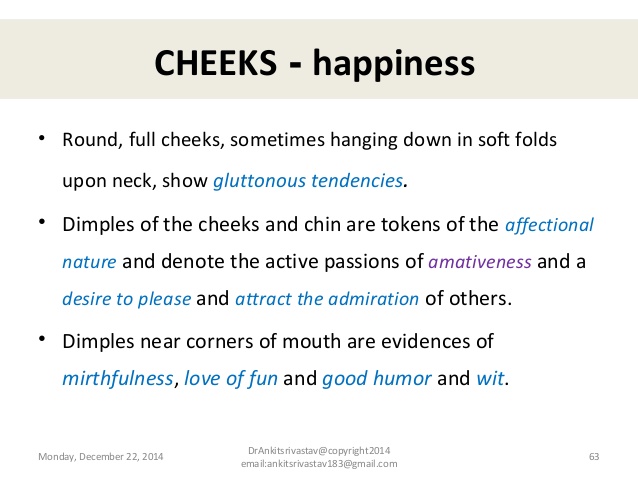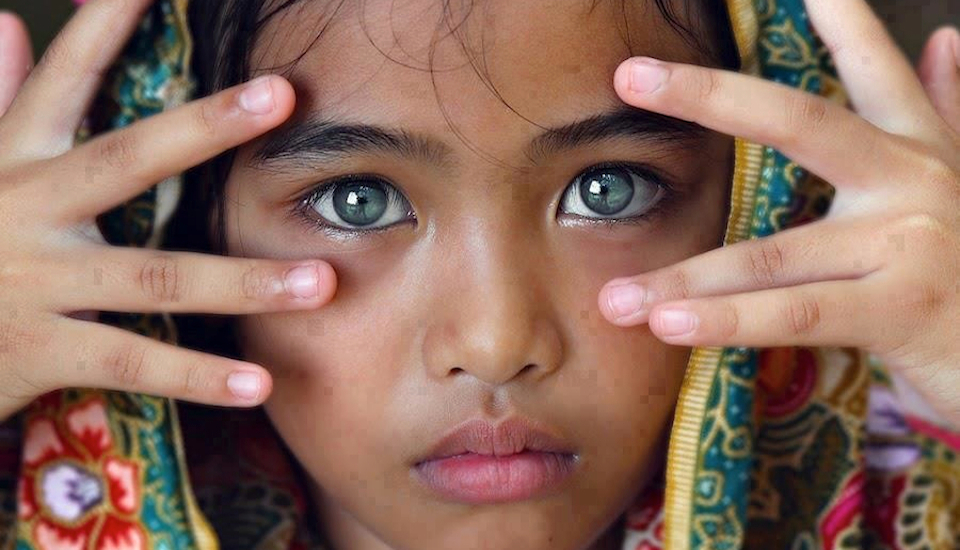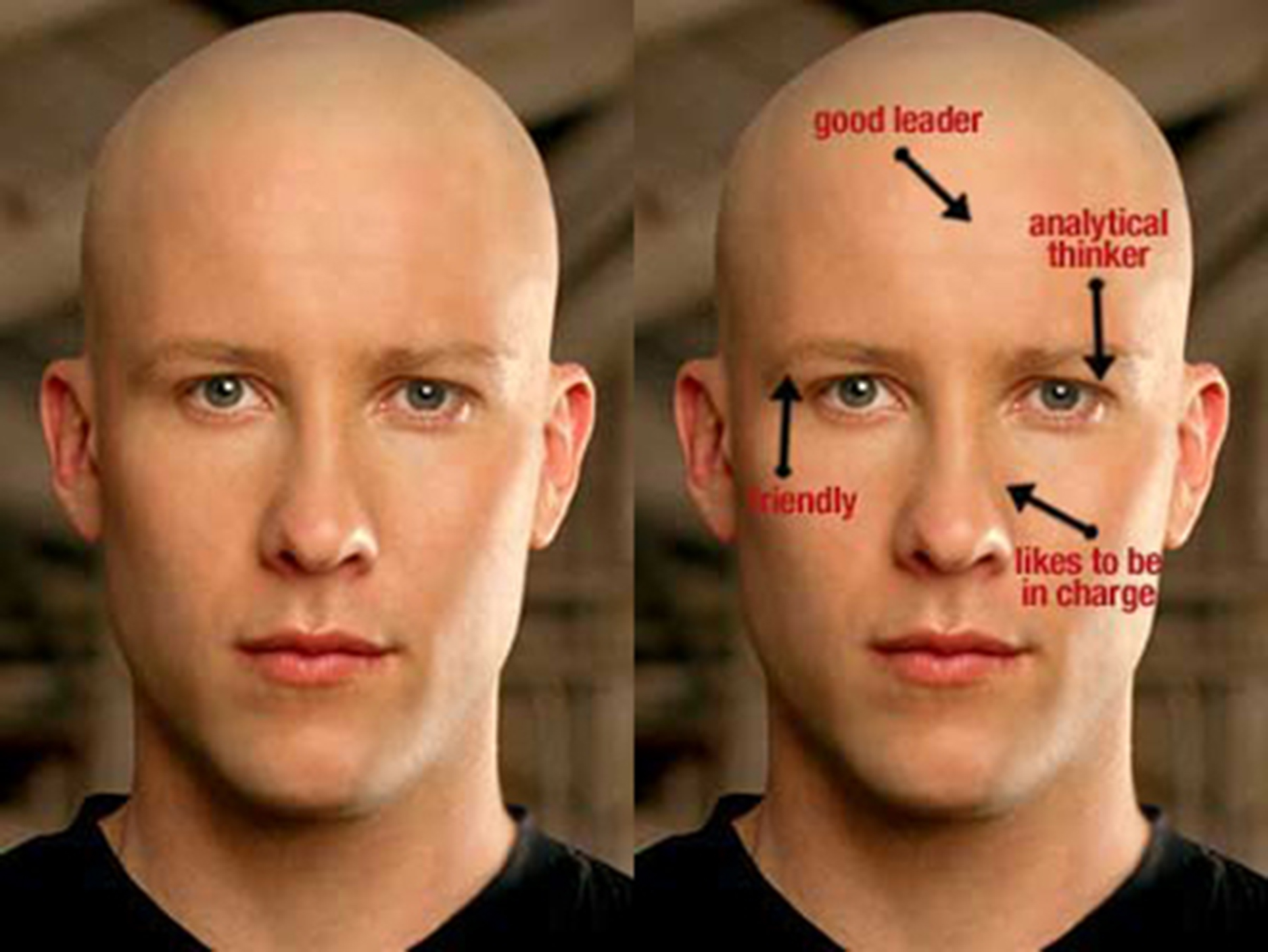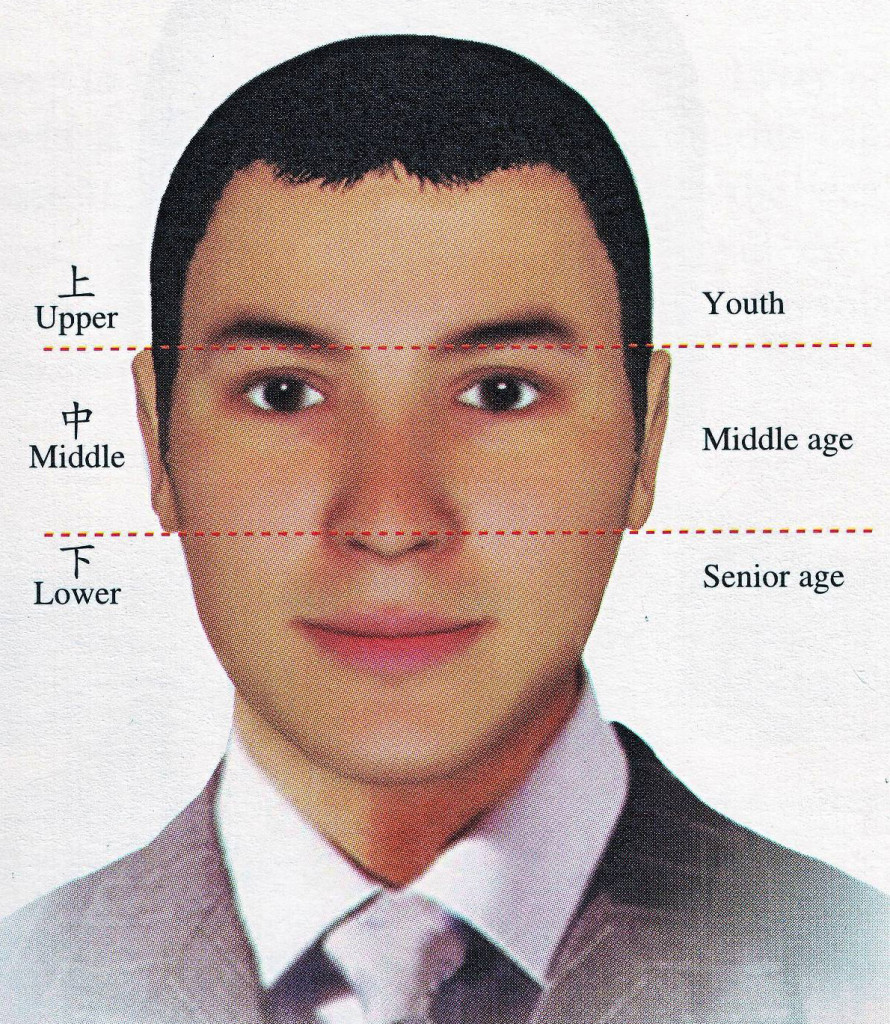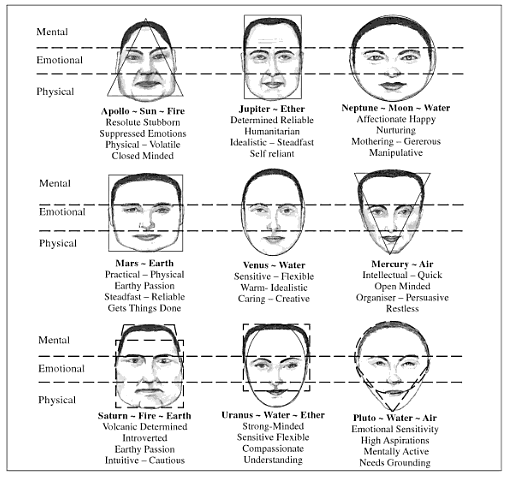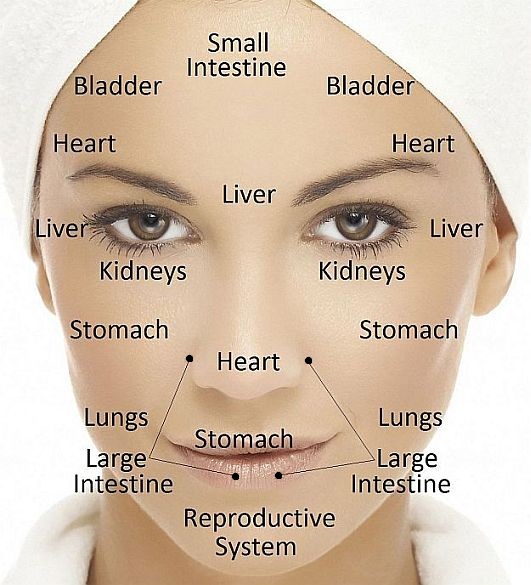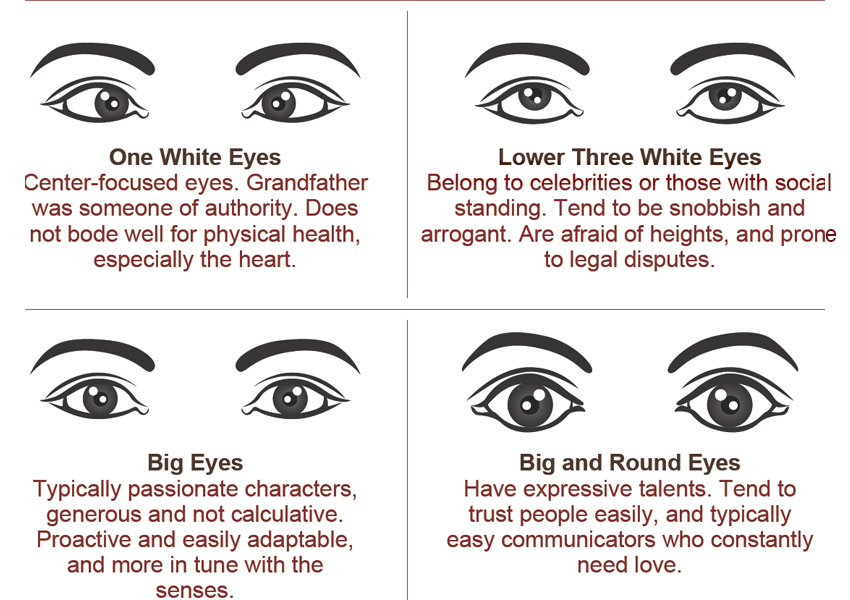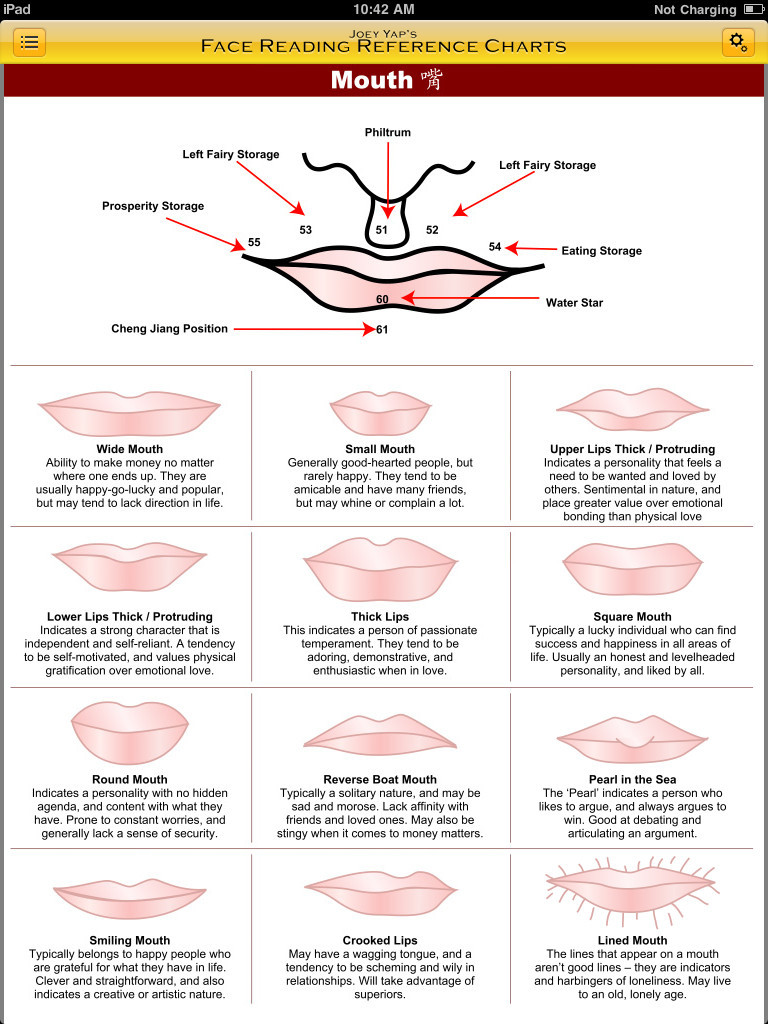06 Sep The Power of Face Reading, your Face never lies part 2
The Power of Face Reading, your Face never lies part 2
Hello again, we hope you enjoy part two of The Power of Face Reading, your Face never lies. We are grateful for your visit and the likes and shares.
Here in part two week 78, we are continuing with parts of your face and samples of face mapping, enjoy, and if you want please contact us and let us know what you thought of the posts.
Types of foreheads
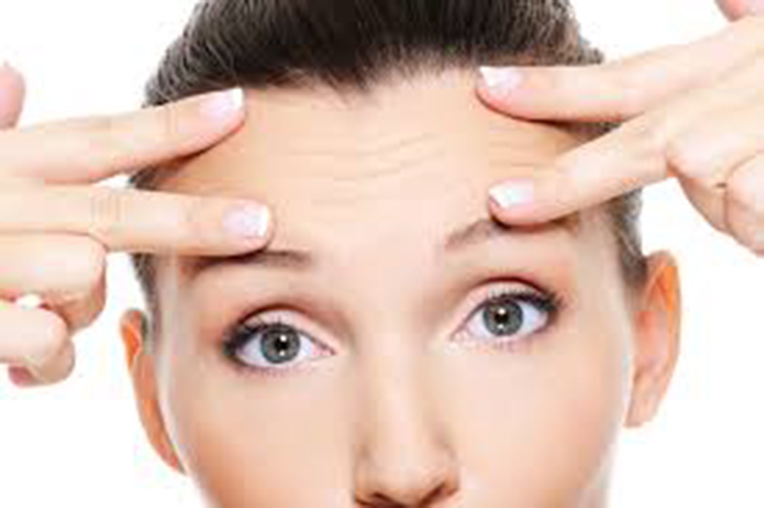
The straight forehead (The progressive thinker):
This person follows a progressive style in his thinking; he can’t jump to the third point without first knowing the second. Sometimes he is misunderstood as a child and thought of as dumb, but in fact, he may be very intelligent; it’s just his progressive style of thinking that needs to be taken into consideration. This person may not have the fastest reflex action response; if he drops something, he may not be able to catch it before it reaches the ground. He may have problems working under pressure as he needs more time to think progressively; that may make him lose control in the last ten minutes of exams.
The sloped forehead (The fast responder):
That person builds conclusions fast, to the extent that he may interrupt you many times when talking because he keeps on guessing what are you about to say. This person may get bored talking to someone with a straight forehead because of the speed difference between them. The response of such a person is very fast, and that’s why you tend to find most football and basketball players with sloped foreheads, you’re also most likely to notice how players with straight foreheads aren’t that good because of their slow responses, and again I repeat, this is not related to intelligence at all. One final thing about such people is that they are fast decision-makers, which may cause them many problems.
The curved forehead (The creative):
This person is very creative, just notice how the forehead of those who study fine arts; you will notice how most of them have curved foreheads. That person would hate restrictions and rules; he likes to use his imagination, and would probably hate math and accounting but excel in arts. When the forehead is curved and occupying a big section of the head, that person may tend to be very intelligent or even a genius. You’d be safe asking that person for help within the need for a creative solution to any problem you’re facing.
Chin
Pointed chin:
A person with a pointed chin is a stubborn person just like the one with long front teeth. Having both features tends to make the person very stubborn. He has a very fierce inner resistance that can be triggered by being pushed. When dealing with such a person, you must depend on your flexibility because pushing against him will yield no result.
Square chin:
A square-chinned person is a challenger; he always challenges destiny by standing up tall upon falling, he never gives up until he reaches what he wants. He is usually very competitive and considers everything, even sports, as a challenge rather than look at the fun part of it. This person has the ability to point out the pros and cons of any issue, something that makes him a very good consultant and a debate over. To get along with him, avoid igniting his fighting spirit and take his opinions into considerations.
The small chin:
Having a small chin is usually associated with having a pointed chin. In face reading, whenever the facial features are relatively smaller to those of normal people, then the person is a sensitive person. People with small chins and small facial features are very sensitive to criticism and overwhelming life events. Criticize those people and they will hate you, shout at them and they may not approach you again. In order to get along with a sensitive person try to be more nurturing than usual
Cheek Bones
People with protruding cheekbones leave an impression of respect and presence. Protruding cheekbones, in face reading, represent courage and adventure-loving. A person with protruding cheekbones never escapes a fight; he is full of courage and has fewer problems with the idea of taking risks or trying something new. He is not bound by a certain comfort zone or definite habits; he just follows his instincts and accepts new challenges. This person also loves to travel and explore new places.
Facial Lines
We are not born with facial lines; they are developed in our lives. Lines can reflect a certain personality trait as we will see below:
Two vertical lines between the eyes:
This person is very hard to himself, he rarely takes the time to celebrate his achievements; he may push himself to work until he falls down.
More than two vertical lines between the eyes:
This person is usually very idealistic, he tends to be a perfectionist; he wants everything to be done perfectly and everything to be in its place. If that person is your manager, then you may be in deep trouble because meeting his perfectionism could be very hard.
Horizontal lines across the nose:
Some people have horizontal lines crossing over the top of their nose. These people are overly responsible; probably have been given lots of responsibility when children. These people rarely think about having fun.
Grief lines:
Some people have two lines below their nose and on either side of their mouth. Those are called grief lines because they appear when that person is sad for prolonged periods; a loss of someone close may result in the appearance of these lines.
Balance and proportion are important in face reading
Balance and proportion are important in face reading, as in Chinese paintings. There are needs for harmony between the mountains (the yang element, represented in the face by the bones) and the rivers, (the yin element which is the soft tissue). Although a face may be considered beautiful by society, in face reading terms it may be too yin (upturned nose, large wide mouth, eyes too far apart, thin eyebrows). Many models have this look. In our language we have many expressions to describe character traits: pay through the nose, two-faced, keeping one’s nose clean, chinless wonder? We may have forgotten how these came into a language in the first place, the mouth relates to communication, and the chin signifies determination, ambition, and practicality among other traits. So, face reading can be used, sum up a person’s energies, to get a health read-out, to assess character, fortune, and other a tributes to help gain self-knowledge and to plan for good health.
There are numerous ways to read a face in Chinese physiognomy: 3 Quarters, 8 Trigrams, 108 Spots, examining the shapes, the colors, the wrinkles, and the moles, just to name a few. A master of face reader usually employs the combination of several techniques to gain multiple perspectives and perform cross-examination.
One example of what lines on the face mean
Following is a brief introduction to the 12 Houses method.
1. Fortune House (Fude Gong)
It gives an overview of your general fortune trend. An ideal Fortune House should be round, full, and smooth with no
visible marks, lines, or scars. Flaws in these areas reflect challenges in your life, which can be in the form of poor health, distressful relationships, or money troubles.
2. Parents House (Fumu Gong)
It is associated with Heaven Luck; in this regard, its state is quite a testimony to the situation that your parents were in
and your relationship with them. A forehead that is wide, round, and shining speaks of a good family inheritance, a comfortable upbringing, and early achievement, while a small, bony, or disfigured one illustrates an uneasy childhood.
3. Career House (Guanlu Gong)
Again, being broad, round, and smooth is the basic criteria to identify a good Career House. If on the top of that, you also
have prominent cheekbones and protruding eyebrows, you shall have a great chance to achieve great success in your chosen field.
4. House of Travel (Qianyi Gong)
If it is in any way disfigured with scars or deep lines, you might be better off staying put. Furthermore, jobs or businesses involving transportation, tourism, or import/export are, understandably, not your best choice.
5. Life House (Ming Gong)
The key to your fortune is deposited here. Naturally, being smooth and shiny is ideal, which suggests a trouble-free life
journey. If it is receded, dimpled, or scared, or there are permanent horizontal lines between the brows, or eyebrows meet in the middle, you may face a bumpy road ahead.
6. House of Siblings (Xiongdi Gong)
Eyebrows and the areas directly above them represent and it also oversees your relationship with your friends and
colleagues. The state of your hair has a direct connection to the physical conditions of your parents at the time when you were conceived, which means it has a lot to do with your genetic make-ups. Brows that are dark, thick, long, smooth, orderly, and located high above eyes indicate a healthy hormone level that gives rise to affection, calmness, and courage. If they look sparse, thin, pale, short, or chaotic, or too close to eyes, or marked with a scar, you could be tormented by your own physical or emotional states.
7. Assets House (Tianzhai Gong)
Your eyes portray your intelligence and temperament, and the very quality of these dispositions plays an important role in your asset acquisition endeavor. Good Asset Houses are constituted with eyes that are long with large pupils and clear whites, and up-eyelids that are broad and full. Recessed or narrow eyelids exhibit impatience. If the whites are colored with red streaks, and worse, if the streaks pass through a pupil, you should brace yourself for challenges in reference to your financial concerns.
8. House of Marriage (Qiqie Gong)
Being full and smooth in appearance indicates a happy marriage. A receded house, however, rings a bell on extra-marital affairs. If the area bears visible spots, scars, black moles, or messy lines, your marriage could have challenges due to some unscrupulous conduct.
9. House of Children (Ernu Gong)
This area is closely related to the cerebellum and also governs your love and sex life, so again, being full and round is better than being flat or receded. Dim moles or slant lines across the area are especially undesirable, suggesting some challenges regarding your own sex life or your children’s future development.
10. Health House (Jie Going)
If the House is broken or marked with horizontal lines, or if it is stained with spots, marks, or discoloration, you shall pay extra attention to your health, especially your digestive system.
11. Wealth House (Caibo Gong)
A nose that has a high and straight bridge, big and round tip, full and fleshy wings, and invisible nostrils, not only indicates sound physical health, a positive mental attitude, also denotes success in career and abundance in wealth. On the other hand, a nose that is low, or crooked, pointed, or narrow, bony, or with a contoured bridge, upturned tip, visible nostrils, reveal a problematic personality, a troublesome financial situation, or a difficult career path. If blood vessels are clearly visible or have a dim blue color tone the surface, pay attention to blood pressure and heart health. When a nose turns bloody red, which is dubbed Fire in Lounge in Chinese physiognomy, it should be viewed as a to the excessive warning sign.
12. Popularity House (Nupu Going)
This House rules your relationship with your colleagues, subordinates, or younger generations, and foretells your situation in your old age. When they are round and full, you can expect to enjoy your popularity among your followers. But if it sharps off, or appears crooked or boney, you probably should reconsider your dream of being a politician. And what’s more, you’d better prepare for self-support during old age.
Marks, spots, scars on, and even shapes of your face can change over time, meaning your fate can alter through the years. You can utilize your Man Power (your attitudes – good deeds, better learning, and hard work) and the Earth Power (your environment – favorable Feng Shui) to neutralize the Heaven Power (your time of birth – what you have inherited from your parents and your previous lives). Ultimately, you are the real creator of your own fate. When you change your heart, you change your face; when you change your face, you change your fate.
Here are some examples of Face reading

